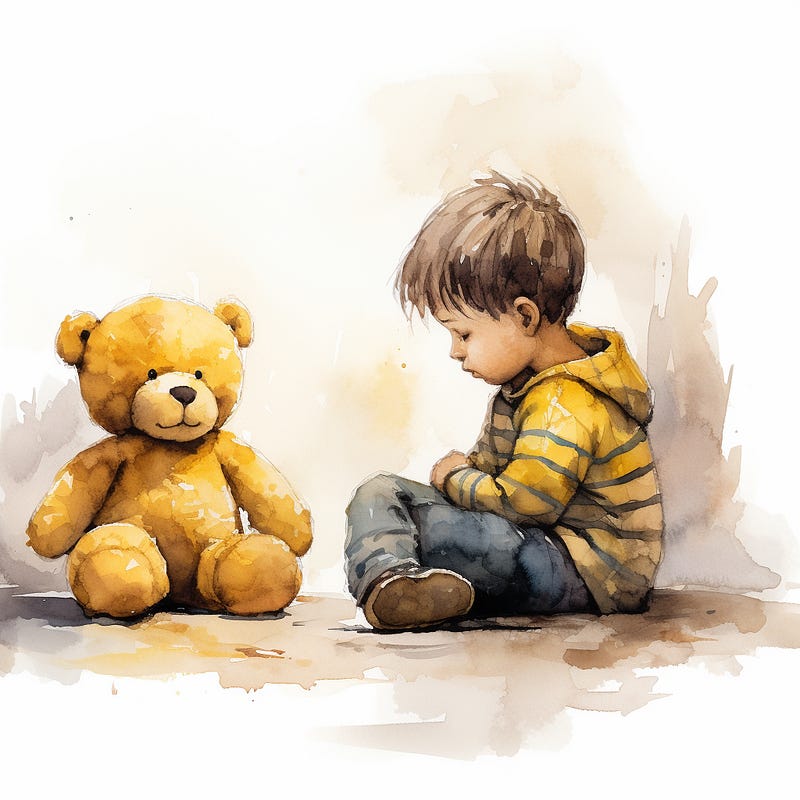Childhood traumas have much more serious effects on adult health than we previously thought. How can the negative effects of a troubled childhood be mitigated?
Childhood traumas have far-reaching consequences on adult health. A study conducted in the mid-1990s, which assessed the health and mental state of 17,000 adults, found a significant correlation between severe illnesses such as heart attacks, certain types of cancer, obesity, depression, and experiences of childhood trauma.
The method used by Dr. Vincent J. Felitti was quite simple. He compared adults’ health conditions with the types and number of childhood traumas they had experienced. The results of the study were startling. The more varied and prolonged the traumas someone experienced, the worse their health condition was.
For instance, those who experienced four types of trauma were 2.5 times more likely to have hepatitis, 3 times more likely to have lung cancer, 3.5 times more likely to have heart disease, 4.5 times more likely to be depressed, and 12 times more likely to commit suicide than those who had no such experiences.
So, what are the most common childhood traumas?
Physical or sexual abuse
Witnessing the above
Physical or emotional neglect
Emotional abuse
Living with a parent with mental health issues
Living with an addicted parent
Death of one or both parents
Divorce
Extended absence of a parent or both parents
Why do childhood traumas have such severe effects?
The answer lies in how traumas impact the developing nervous system. Most of us have heard of the fight or flight stress response. It’s crucial for survival. If we encounter a bear on a forest trail, the fight or flight stress response activates.
To effectively defend or flee, our body produces stress hormones, which result in:
Heightened alertness
Increased brain activity
Dilated pupils for sharper vision
Faster heart rate and breathing
Elevated blood pressure
Tense muscles
Increased blood sugar and cholesterol levels
Reduced blood flow to internal organs and more to the limbs
Decreased pain sensation
Reduced blood flow to the logical and rational parts of the brain (frontal cortex) and more to the primitive survival parts
Decreased immune activity to conserve energy
This ancient survival instinct is very useful when facing a bear. But what if the bear comes home every night? Or is there all day? This reaction then becomes constant. Consider the effects on a child’s body if they constantly have high blood pressure, elevated blood sugar and cholesterol levels, suppressed immune system, reduced blood flow to internal organs, and the brain area responsible for learning and impulse control (frontal cortex) constantly struggles with nutrient deficiency! Over years…
It’s easy to deduce that their brain will develop differently, leading to potential learning and behavioral challenges. Additionally, their immune system may be much weaker. If not addressed, childhood issues can lead to premature death or severe illnesses, even at a young age.
Addressing the physical and emotional impacts of childhood trauma is not an easy task. It’s often impossible to completely neutralize them, but significant improvement can be achieved, so it’s worth trying. Our bodies retain our experiences, even those we don’t consciously remember.
In my experience, deep introspection, family constellations, bodywork, Theta-floating, and craniosacral therapy offer valuable assistance in processing these experiences and restoring our health.
– Eszter
Related Article
Deprivation Traumas and Their Surprising Consequences
Home | Notes | Articles | Eszter’s Magic | Literary Bonbons | Short Stories and Guides | Beyond the Book | EWE Issues | Archive | About





